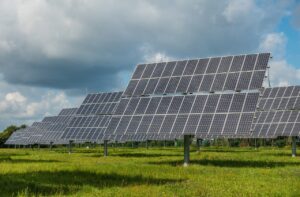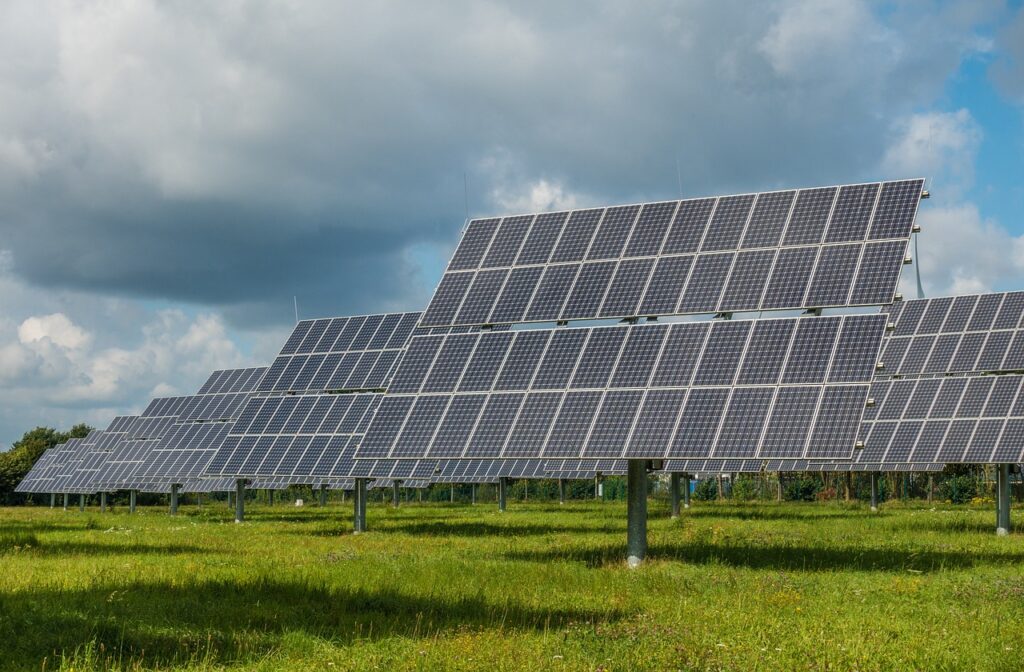This question is asked by many: Why is solar power not widely used? The upfront expense of switching to solar, although cheaper than ever before, might be intimidating to some individuals. Even though, several incentives might reduce the cost of installing solar panels. Moreover, awareness is not sufficiently broad to convince most people to abandon conventional power sources.

Why is solar power not widely used?
The world’s most plentiful, dependable, and pollution-free source of energy is the sun, but why is solar power not widely used? Solar energy’s shortcomings, particularly its high cost and erratic supply, have kept it from becoming a more widely used energy source.
Even though there are large areas of North America where the sun is always shining, less than 0.5% of the energy produced in the country comes from solar energy. We need to find new materials, create new production methods, and find a solution to the energy storage issue to harness more of this free energy.
Cost is the only factor impeding the growth of solar electricity. power generated from solar energy is five to eleven times more expensive to create than power from coal, hydro, or nuclear sources.
Advantages of solar energy
Why is solar power not widely used? Before wondering about that you should know that our closest star has a huge potential for supplying everyday energy to individuals and companies, and we mention them in 7 points below.
A source of energy that, by definition, is both renewable and limitless
Yes, the yellow dwarf that lends our solar system its name won’t last forever. In reality, as it concludes its main sequence, four to five billion years from now, it will become unstable.
The sun, however, continues to be an unchanging and limitless source of energy in the interim and on a timescale that is more pertinent to us; day after day, year after year, it is and will always be there, always precisely the same.
It works well with batteries and the power grid
We are better able to control the gap between energy demand and what the sun naturally supplies because of larger, more effective, and dependable storage systems.
Photovoltaics produces energy mostly in the middle of the day. Generally speaking, solar energy, especially when photovoltaic technology is utilized to create it, may be sent directly to the electrical grid, however, there may be variations from nation to country.
The sun generates income and jobs locally but why is solar power not widely used?
Out of all green vocations, solar energy generates the greatest job openings for power plant developers, builders, installers, and maintenance specialists. Utilizing solar to its maximum potential gives the economy a boost and presents a chance for investment for individuals, families, enterprises, and even entire countries.
Flexibility in technology
The adaptability of solar energy also applies to its technologies. Photovoltaic panels come to mind first, but solar energy may also be utilized to generate thermal energy by heating fluids, or in the most advanced thermodynamic solar power plants, by mixing both types.
Requires little upkeep
The post-installation maintenance is similar to that of a typical electrical system, with the addition of some periodic cleaning and little else, so maintenance is minimal even though photovoltaic panels do gradually become less efficient over their useful lifespan of 20–25 years.
A dependable, robust technology
Photovoltaics is a well-developed technology that is ingrained in 21st-century reality. As was the case in the latter half of the 20th century, these systems are no longer cutting-edge or experimental fixes; rather, their dependability, longevity, and performance are all above average.
7 disadvantages of solar energy
Solar panels are a joke. a lot of people think that Because of its flaws. If you’re wondering what the drawbacks of solar energy are for at-home or large-scale businesses, this article examines seven main difficulties, which also may be the answer to the question of Why is solar power not widely used?
Why solar panels are not worth it? Starting price plays a role
For systems generating up to 8Kw of electricity, which is sufficient to power a four-bedroom home, the initial cost of installing solar panels is highly expensive, costing over $29,000.
Environmental consequences of solar panels
The environmental impact that materials, space, and production have on the environment is one of the less well-known drawbacks of passive solar energy. Large solar energy fields encroach on agricultural land and natural plant and animal habitats.
Space Constraints
The majority of residential houses have plenty of room to install solar panels and provide all of their electricity requirements. Solar power systems may be adapted into RVs and cottages as well.
Inefficient Energy Conversion
The average efficiency of solar panels is between 15 and 19%, with the highest solar panels having an efficiency of between 22 and 23 %. As a result, the most effective solar panels now available can convert 23% of the solar energy they capture into useful power.
Price of Energy Storage
One of the biggest drawbacks of using solar energy is that if you want to have electricity at night, you’ll also need to buy batteries and solar charge controllers. Together, these two elements control and store gathered energy for eventual use. Without them, you’re restricting your energy use to the times when the sun is out.
Unpredictability of sunlight
When addressing the question, why is solar power not widely used? You must mention the erratic behavior of the sun. Dawn to dark, day-to-day, season, and geographic location all affect how much sunlight is produced. Residents in northern latitudes with lengthy, gloomy winters experience a significantly higher disadvantage to sunlight energy than those who live in brighter latitudes nearer the equator.
No Energy Is Produced at Night
You will run out of energy at night when the sun sets because you must consume solar energy as the sun creates it and your panels transform it. If you only use solar energy, this presents a challenge for activities throughout the night.
PAA
Why is solar power not widely used in the united?
Solar power is not widely used in the united because of cost and infrastructure.
When is it anticipated that the general people would have easy access to solar energy?
Solar energy will be widely available by 2050.
Why are solar cells not widely used?
Because solar wasn’t as cost-effective as many other energy sources.
What is a big disadvantage of solar cells?
A big disadvantage of solar cells is the solar panels’ comparatively expensive installation costs.
What are the drawbacks of solar energy use?
The negative effects of using solar energy are cost, weather-dependent, storage for solar energy is expensive, takes up a lot of room, and is connected to pollution.

